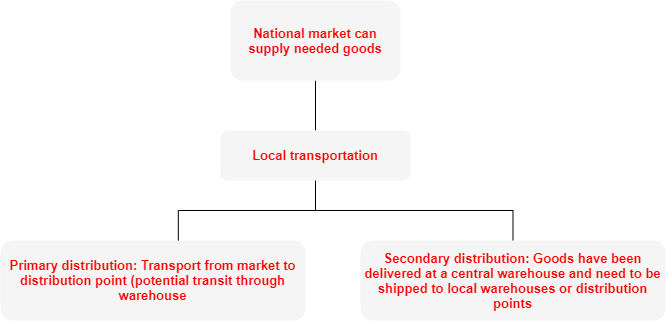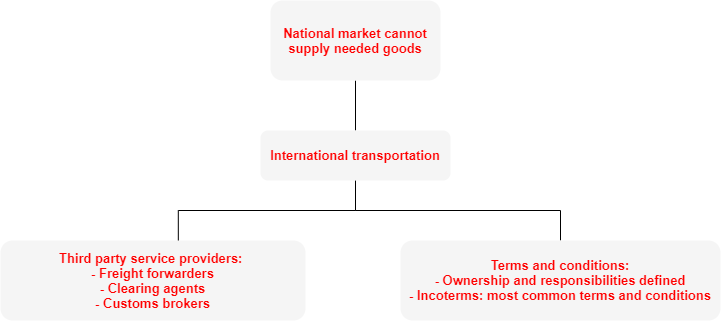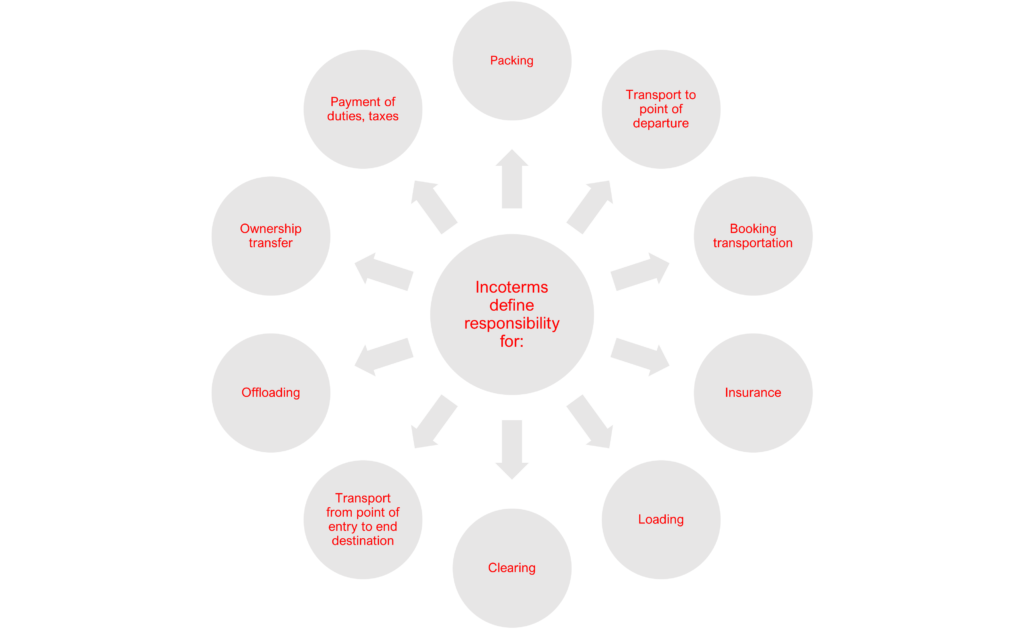How Can We Help?
Types of movements: local and international
Local transportation is often required in countries where the national market can supply goods for the purpose of the ongoing programmes, in which case transport is from market to distribution point, with potential transit through a local warehouse (also known as ‘primary distribution’).
Local transportation is also required when goods have been delivered in country at a central warehouse and need to be further distributed to smaller regional or local warehouses, or distribution points. Sometimes these delivery points are served by a single transport movement; this is called “secondary distribution”.

Primary distribution
Primary distribution is usually straightforward and can be organised either by the selling party or the buyer of the goods.
For fragile loads, refrigerated goods or controlled supplies (chemicals, drugs, etc.) it is often better to leave the organisation of the transport to the seller, who will have a better understanding of the safety or regulatory requirements and a knowledgeable network of transporters.
For general supplies with no specific requirement, the buyer can organise transportation, either mobilising their own resources or outsourced fleet (rented trucks or chartered flights, for example).
Secondary distribution
Secondary distribution often requires more in-depth planning, to avoid wastage of time and resources.
Optimisation factors will include:
- Route definition: sequencing the deliveries in a way that minimises the use of fuel and lead times.
- Vehicle load: load in order of distribution, to minimise offloading time.
- Local context: considering labour laws and security rules (maximum number of hours worked, curfews).
- Safety and security: planning for safe overnight arrangements when the distribution route spans several days.
Specifics of international movements
International movements involve transportation from the origin country to the destination country, via ports, roads, airports or train stations.
Moving goods internationally will require interventions of third parties such as customs officials, clearing agents who may be required to support the customs clearance process, and freight forwarders who may be needed in case the sending or receiving party cannot supply the necessary vehicles.

International shipments are usually arranged as part of the sourcing or contracting process under specific terms and conditions, commonly known as incoterms, or International Commerce Terms. Click here to access a guide to Incoterms and a summary table.
Incoterms are defined by the International Chamber of Commerce (ICC) and are a series of pre-defined commercial terms that ensure sellers, shippers and buyers have a shared understanding of the commercial terms governing the commercial transactions they enter.
The agreed-upon incoterm will determine several conditions of the sale but most importantly, it will define who has responsibility (over costs and process) of:
- preparing the consignment for export (palletising, labelling, marking, wrapping, etc)
- carrying the consignment from seller to point of departure (port or airport)
- arranging and booking transportation services
- insuring the goods – up to which point will the goods be covered by the seller’s insurance and from which point will they be covered by the buyer’s insurance?
- loading the goods at point of departure and offloading at point of arrival
- clearing the goods through customs at point of arrival
- transporting the goods from point of arrival to point of delivery
- offloading at point of delivery
- defining when the ownership of the goods transfers from the supplier to the buyer
- clarification of who carries responsibility for payment of import duties, taxes, etc.
Planning for all of the above and selecting the right incoterm will avoid surprises during the transportation of the goods.
For a list of the most up-to-date incoterms, see the ICC website or the incoterms guide or summary table.

Read the next section on Modes of shipment here.
Related resources
Download useful tools and templates

